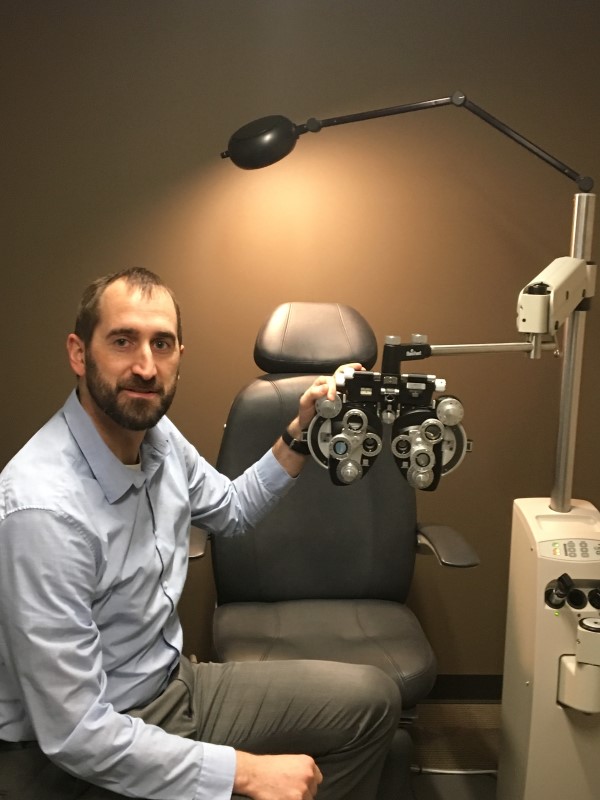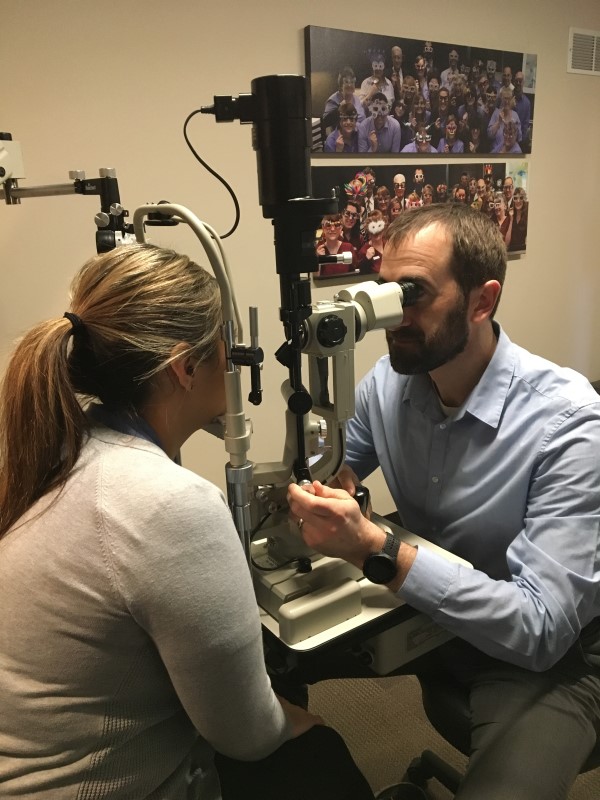Guest Post: What to Expect at Your Eye Exam After You’ve Been Diagnosed with Diabetes
By Alaina Webster
Hawks, Besler, Rogers & Stoppel
Optometrists
www.hbreyecare.com
 A diabetes diagnosis can affect many aspects of your life–your hands, your feet, and yes, your eyes.
A diabetes diagnosis can affect many aspects of your life–your hands, your feet, and yes, your eyes.
As a peripheral vascular disorder that causes the blood vessels to become fragile over time, it can result in neuropathies (pain and loss of feeling in your extremities), kidney disease and retinopathies (leakage of the blood vessels in the eye that may lead to changes in vision).
Because diabetes affects the eyes, it’s important to not only share your diagnosis with your optometrist but also schedule more frequent exams.
“If the retina, or the back of the eye, is clear, then we monitor patients on a yearly basis,” says Jon Stoppel, an optometrist with Hawks, Besler, Rogers & Stoppel.
“Depending on the severity of diabetic retinopathy, we will have more frequent evaluations to make sure the bleeding and edema don’t cause permanent vision changes.”
Optometric exams for patients with diabetes are slightly different than for those without. For one thing, you can always expect to be dilated, and photos of the back of the eye will be taken every time. In certain cases, a scanning laser called an OCT will be used to determine a level of edema that can be caused by diabetes.
“We dilate on almost every visit to determine the severity or degree of any diabetic retinopathy present. We take fundus photos, which are pictures of the back of the eyes, to help with current diagnoses but also to provide a baseline for future visits,” Stoppel says.
If the disease progresses too far, your optometrist will likely consult with retinal specialists who will manage the disease with surgical procedures such as lasers or ocular injections.
To combat additional progression of diabetes in the eye (and throughout the body) it’s important to manage your blood sugars.
 “If you can keep or reduce your hemoglobin A1C under 6.5 percent, in conjunction with lowering or maintaining your blood pressure in a normal range [under 120/80] you can limit the stress on your peripheral vascular system,” Stoppel adds. “By eating healthy and with regular exercise, you can greatly reduce the effects of vision changes due to diabetes.”
“If you can keep or reduce your hemoglobin A1C under 6.5 percent, in conjunction with lowering or maintaining your blood pressure in a normal range [under 120/80] you can limit the stress on your peripheral vascular system,” Stoppel adds. “By eating healthy and with regular exercise, you can greatly reduce the effects of vision changes due to diabetes.”
Stoppel recommends healthy carbohydrates such as fruits, vegetables and whole grains. Low-fat dairy options are also encouraged.
Fiber-rich foods are generally lower in calories and aid in digestion. Heart-healthy fish, such as salmon or tuna, that are high in omega-3s and promote lower blood triglycerides.
“Avoid high saturated fats, trans fats and high sodium,” he suggests.
The American Diabetes Association recommends aiming for 30 minutes of moderate to intense aerobic exercise, five days a week.
“Currently one of the leading causes of blindness in the United States is diabetic retinopathy,” Stoppel notes. “If we can learn to manage the disease with adequate blood sugar control, proper diet and exercise, we can limit the permanent effects with vision as well as the systemic effects caused by diabetes.”
We thank the doctors and staff at Hawks, Besler, Rogers & Stoppel, Optometrists, for partnering with Health Partnership Clinic to provide eye care for our patients!






